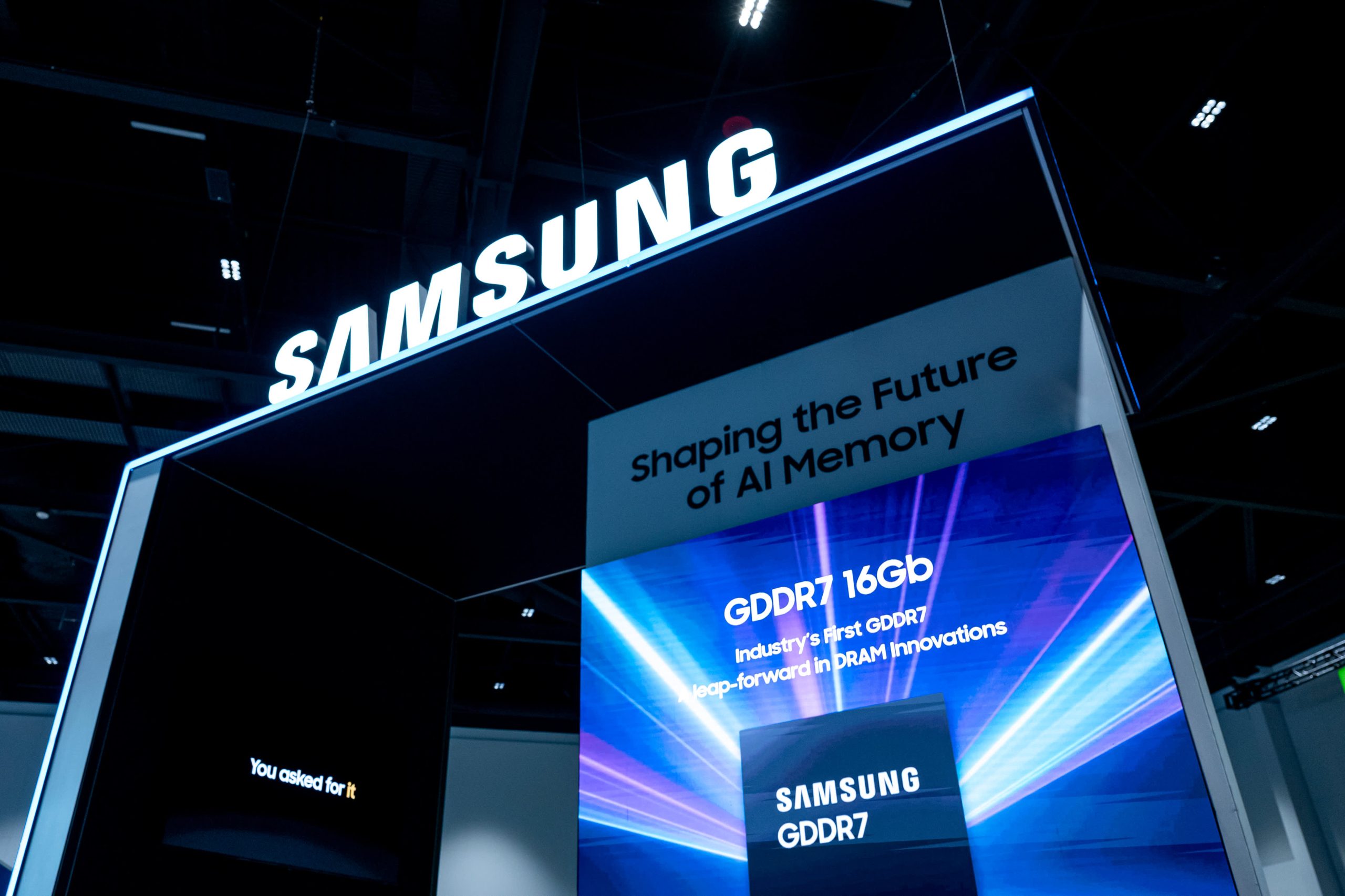South Korea’s Samsung Electronicsforecast a 56% fall in profits for the second quarter as the company struggles to capture demand from artificial intelligence chip leader Nvidia.
The memory chip and smartphone maker projected operating profit for the quarter ending June to be around 4.6 trillion won, down from 10.44 trillion Korean won year over year.
The figure is a deeper plunge compared to SmartEstimate from LSEG, which is weighted toward forecasts from analysts who are more consistently accurate.
According to LSEG SmartEstimate, Samsung was expected to post an operating profit of 6.26 trillion won ($4.57 billion)for the quarter. Meanwhile, Samsung projected its revenue to hit 74 trillion won, falling short of the LSEG SmartEstimate of 75.55 trillion won.
Shares of Samsung Electronics fell as much as 1.13% in early choppy trade Tuesday following the release of the earning estimates.
Samsung is a leading player in the global smartphone market and also one of the world’s largest makers of memory chips, which are used in devices such as laptops and servers.
The company said in a statement that inventory value adjustments and the impact of U.S. restrictions on advanced AI chips for China had contributed to the decline in profits.
The company has also been falling behind competitors like SK HynixMicron
“The disappointing earnings are due to ongoing operating losses in the foundry business, while the upside in the high-margin HBM business remains muted this quarter,” MS Hwang, research director at Counterpoint Research, said about the earnings guidance.
SK Hynix, the leader in HBM, has secured a position as Nvidia’s key supplier. While Samsung has reportedly been working to get the latest version of its HBM chips certified by Nvidia, a report from a local outlet suggests these plans have been pushed back to at least September.
The company declined to comment on the status of its deals with Nvidia, but said that improved HBM products are proceeding with customer evaluation and shipments.
Ray Wang, research director of semiconductors, supply chain and emerging technology at Futurum Group told CNBC that it is clear that Samsung has yet to pass Nvidia’s qualification for its most advanced HBM.
“Given that Nvidia accounts for roughly 70% of global HBM demand, the delay meaningfully caps near-term upside,” Wang said. He noted that while Samsung has secured some HBM supply for AI processors from AMD, this win is unlikely to contribute to second-quarter results due to the timing of production ramps.
Meanwhile, Samsung’s chip foundry business continues to face weak orders and serious competition from Taiwan Semiconductor Manufacturing Company
Reuters reported in September that Samsung had instructed its subsidiaries worldwide to cut 30% of staff in some divisions, citing sources familiar with the matter.
Samsung Electronics’ stock is up over 16% year-to-date, according to LSEG data. The company will release its detailed third-quarter results towards the end of this month.
International: Top News And Analysis
Read the full article <a href="Read More” target=”_blank”>here.


